- Clinical Technology
- Adult Immunization
- Hepatology
- Pediatric Immunization
- Screening
- Psychiatry
- Allergy
- Women's Health
- Cardiology
- Pediatrics
- Dermatology
- Endocrinology
- Pain Management
- Gastroenterology
- Infectious Disease
- Obesity Medicine
- Rheumatology
- Nephrology
- Neurology
- Pulmonology
Infections On the Spread-A Photo Quiz
Diagnosing and managing infectious diseases can be challenging. This week’s photo quiz offers a variety of presentations to test your acumen.
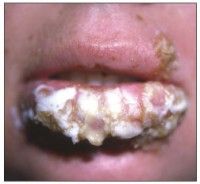
Question 1:
After returning from a skiing trip, a 24-year-old woman sought medical attention for an eruption of sudden onset on her lip. She also had a sore throat and low-grade fever.
NEXT QUESTION »
For the discussion, click here.
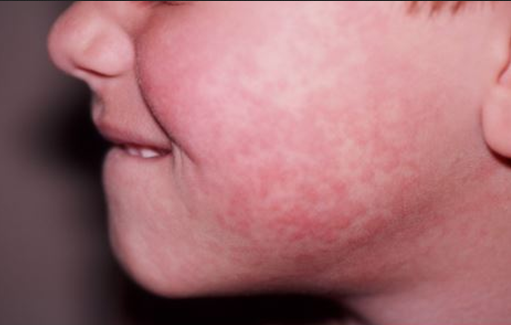
Question 2:
A 5-year-old boy presented with an asymptomatic lacy, reticular rash of 4-days duration. It began with the appearance of a solid red rash on his cheeks. The next day the lacy rash covered his entire body and the solid rash on his cheeks also became lacy. The diagnosis was fifth disease.
NEXT QUESTION »
For the discussion, click here.
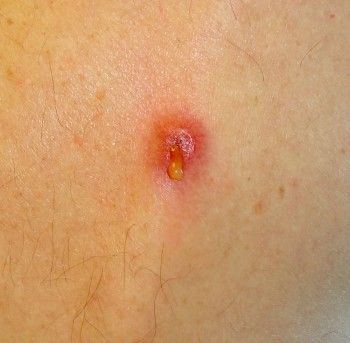
Question 3:
A 51-year-old man complained about a solitary painful lesion on the back. His past medical history included numerous bouts of folliculitis that involved the trunk. A solitary, exquisitely tender bright red, fluctuant nodule was found on the back. Incision allowed drainage of copious seropurulent material. He also was given a 2-week course of oral doxycycline. Culture verified methicillin-resistant Staphylococcus aureus (MRSA).
NEXT QUESTION »
For the discussion, click here.
For the answer, click here.
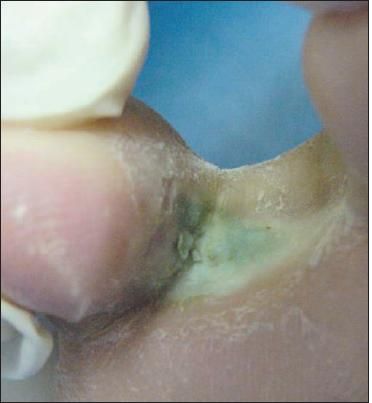
Question 4:
A 31-year-old man presented with asymptomatic, malodorous discoloration of the toe web spaces. Extensive maceration and a green tinge between the toes were noted. He reported that his feet perspire heavily in the boots his work requires him to wear. A diagnosis of foot intertrigo was made after the results of a bacterial culture were positive for Pseudomonas aeruginosa, Morganella morganii, and normal skin flora.
NEXT QUESTION »
For the discussion, click here.
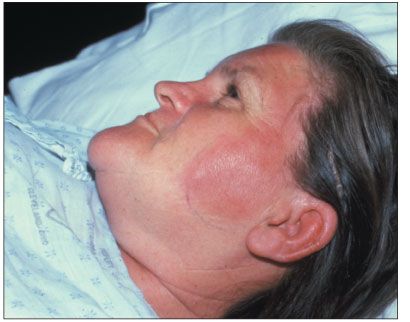
Question 5:
Facial erysipelas is seen in an indurated and erythematous lesion that might be mistaken for cellulitis.
NEXT QUESTION »
For the discussion, click here.
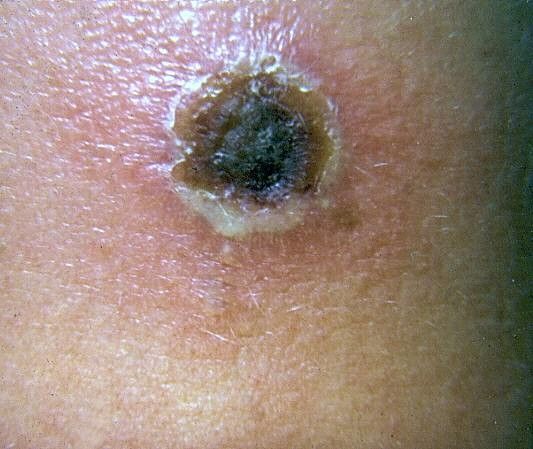
Question 6:
A young man sought medical attention after a motorcycle mishap that led to multiple leg abrasions. One such lesion (shown here) expanded rapidly and became progressively painful. The center of the lesion turned dark. The black, hard center represents an eschar.
This type of morphology often is caused by a virulent organism-bacterial or fungal.
ANSWER KEY »
For the discussion, click here.
ANSWER KEY:
Question 1. A
Question 2. D
Question 3. D
Question 4. C
Question 5. F
Question 6. D
